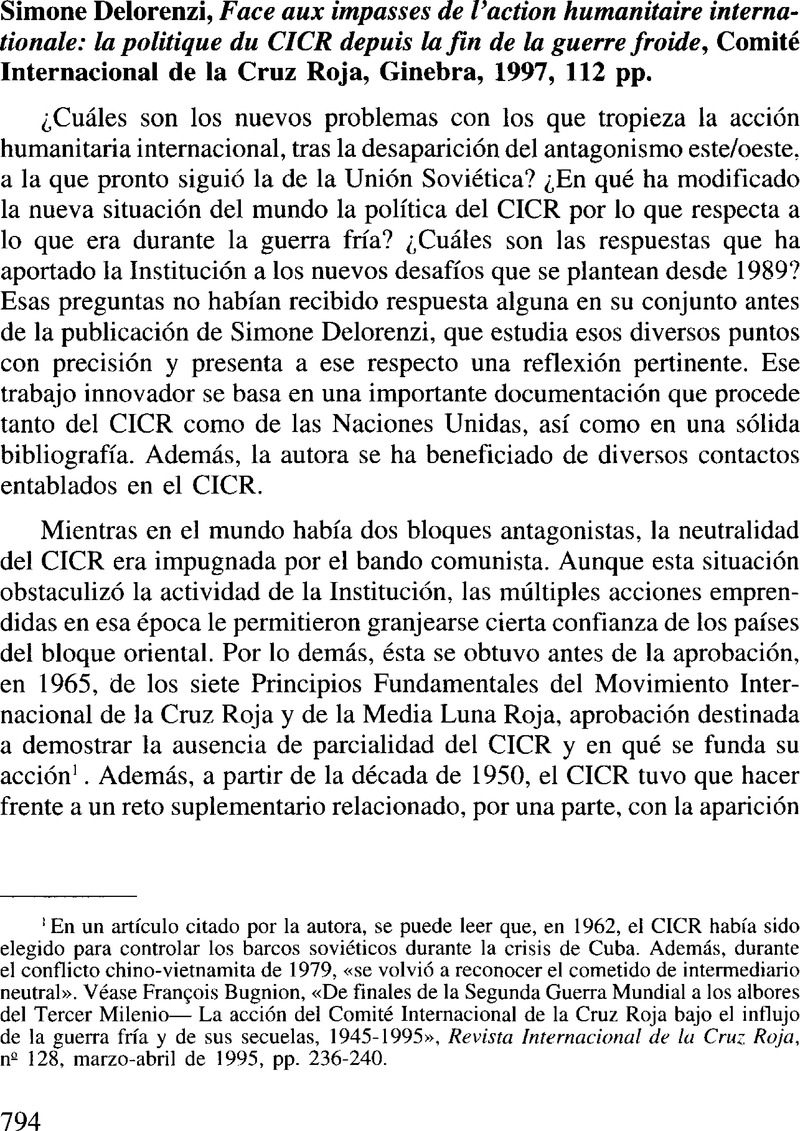No CrossRef data available.
Published online by Cambridge University Press: 23 March 2011

1 En un artículo citado por la autora, se puede leer que, en 1962, el CICR había sido elegido para controlar los barcos soviéticos durante la crisis de Cuba. Además, durante el conflicto chino-vietnamita de 1979, «se volvió a reconocer el cometido de intermediario neutral». Bugnion, Véase François, «De finales de la Segunda Guerra Mundial a los albores del Tercer Milenio— La acción del Comité Internacional de la Cruz Roja bajo el influjo de la guerra fría y de sus secuelas, 1945–1995», Revista Internacional de la Cruz Roja, nº 128, marzo-abril de 1995, pp. 236–240.Google Scholar
2 Favez, Jean-Claude, Une mission impossible? Le CICR, les déportations et les camps de concentration nazis, Editions Payot, Lausana, 1988.Google Scholar